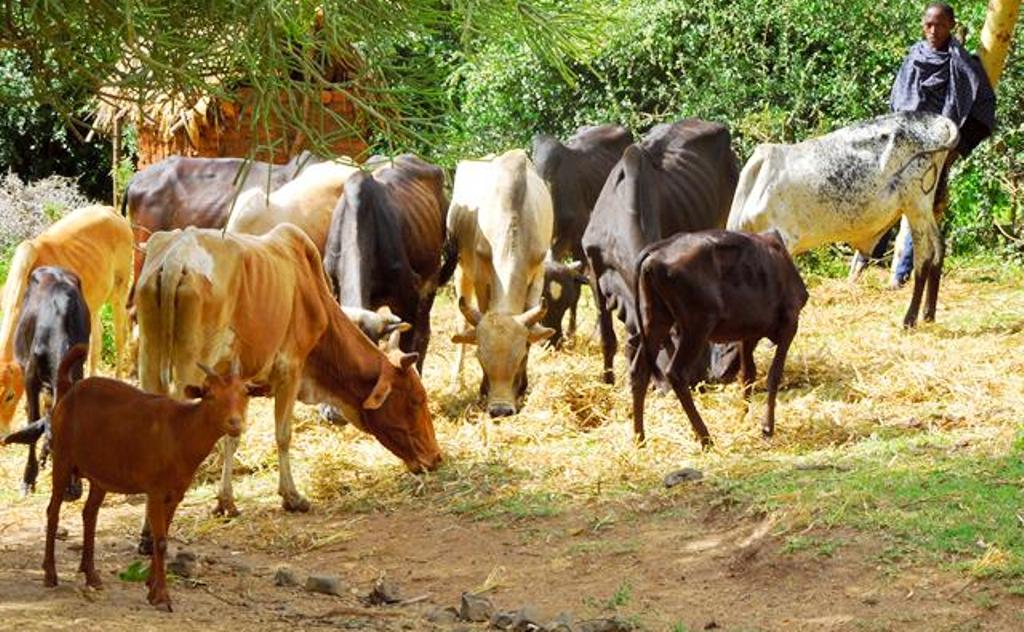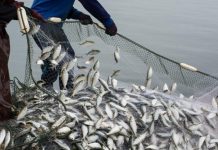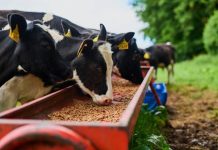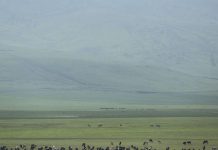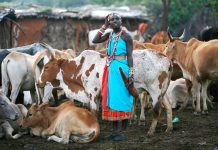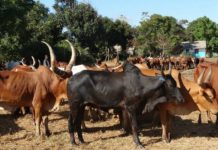AfricaPress-Tanzania: SMALL-SCALE pastoralists in rural areas have been advised to use services of livestock researchers in order to improve their livestock products.
The pastoralists, are said to stand a better chance of benefiting from the ongoing impetus on industrial economy, should they adopt modern pastoralistic practices and technologies.
Acting General Director for the Tanzania Livestock Research Institute (TALIRI), Dr Jonas Kizima, said it was high time for the rural smallholder pastoralists to embrace hybrid cattle, but also, start adhering to recommended livestock keeping practices.
He observed, a big percentage of pastoralists in rural areas are still keeping their animals very locally, hence failing to fetch the economic potential the sector has in the store.
The TALIRI’s Boss, who was speaking at one of the Institute’s community outreach programmes, said small scale pastoralists was a meaningful workforce to fast track economic pace in the country.
“The institute, TALIRI, in cooperation with likeminded experts from the private sector is working professionally to research, innovate and disseminate key technologies for the betterment of the livestock keepers, but it’s very saddening that majority of pastoralists in remote areas are still far away to benefiting from such services, “ he observed.
However, he challenged them to refrain from unfounded belief that the advanced technology is only meant for the giant livestock keepers.
“For instance, we’re distributing useful technologies for improving production and productivity for dairy and beef cattle, and at patriotic prices,” he stated, adding that the technologies were vital for enabling the pastoralists to escape from shackles of poverty.
Apart from that, the director unveiled that the pastoralists are also in access to opportunities to engage into forage production, the move which will also help to supplement their incomes.
He said the institute would continue working tirelessly to distribute key livestock technologies to pastoralists at all levels within the country in order to scale- up performance of the sector.
“ We have, and are continuing to research and come up with assured solutions to increase productivity for the keeping of all livestock,” he insisted.
Among the key technology being implemented by the institute include the Multiple Ovulation and Embryo Transfer (MOET).
MOET, a conventional embryo flush, is the first-class procedure used in advanced cattle breeding. It involves a 5 -week super ovulation programme, resulting in several eggs being released from the donor cows, as opposed to one during a natural heat.
The technology seeks to stimulate growth of dairy and meat processing industries through increased production of raw materials including milk, meat and hides.
The major targets, among others, is to increase income, nutrition and employment among livestock communities in Tanzania.
The livestock industry in Tanzania plays important socio-economic roles that include contributing to building a strong national economy, contributing to household food supplies and incomes and in providing employment opportunities to livestock keeping individuals and communities, while nurturing the natural resources.
Tanzania has potential chance to improve her livestock sector, include a large number of indigenous and adaptable stock, abundant land and water resources, vast rangelands with adaptable pastures and forages, domestic and external markets and marketing outlets, manpower resources and an enabling policy environment.
Despite such opportunities, the sector however faces some challenges, including low generic potential of the indigenous livestock, poor management of land, water and pastures, low animal health and standards to meet conditions set by international livestock trade, inadequate infrastructure for livestock and livestock products as well as prevalence of diseases.
“Potential to increase both livestock production and productivity and its contribution to the national Gross Domestic Product (GDP) exist, as the land carrying capacity of up to 20 million Livestock Units has not been utilised,” Dr. Kizima detailed.


